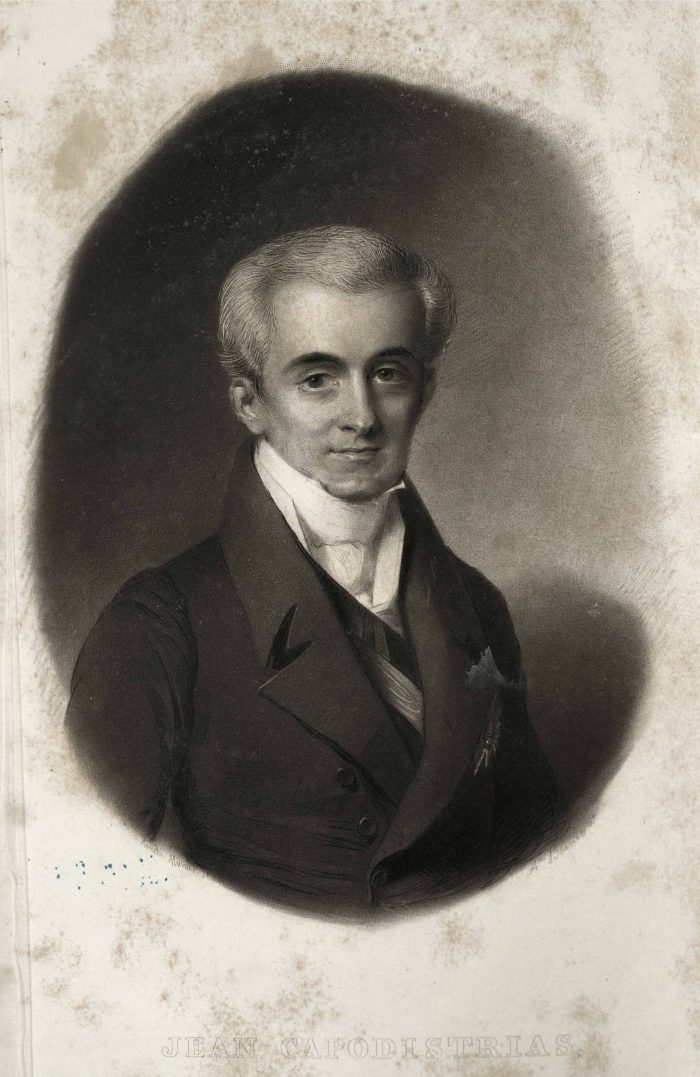After visiting the courts of Europe in search of support, Capodistrias arrived in devastated Greece in early 1828, determined to organise a state from nothing. From the start, he managed to ensure the cooperation of representatives of all the leading groups. This meant that he achieved the internal peace that would allow the organisation of a basic administration, the state machinery to work with some effectiveness, and care to be taken of orphans and those in general who were defenceless. The country gained security and the groundwork was laid for a smooth transition. The Governor’s priority was to expel the Turks and Egyptians from the Peloponnese and Central Greece and secure, as far as possible, the widest borders for the new state. According to Capodistrias, Greece in 1828 was not yet mature enough for a constitutional system of government. The liberation of the country, international recognition, the establishment of secure borders, and the distribution of land to the landless had precedence. Amongst the priorities of Capodistrian policies was the expansion of basic education through peer-to peer schools and the creation of a central school for the education of future teachers.
In his efforts to create a European state, over time, Capodistrias made many political enemies. These included many factions: the new reality brought to the forefront new political and social forces with conflicting interests. Many of the hopes of the revolutionary Greeks were dashed by the harsh reality of a small, poor country that was forced to take its first steps reliant on aid from European powers. Capodistrias himself adopted a centralised system of government, which upset those who believed in democratic processes. Furthermore, mostly the British, but also the French, felt that Capodistrias served Russian interests and, in any case, did not satisfy their demands. Although the Governor succeeded in achieving Greek independence—with expanded borders—by the treaty of 1831, the bitter reaction against him took form in the Mavromichalis family. On the morning of Sunday, 27th September 1831, in Nafplio, he was murdered at the church of Agios Spyridon by the son and brother of Petrobey Mavromichalis.
A chapter ended for the new Greek state. The Governor’s body would be taken to Corfu in April 1832 by his brother Augostinos to be interred at Platytera Monastery, next to the grave of his father, Antonio-Maria Capodistrias.


